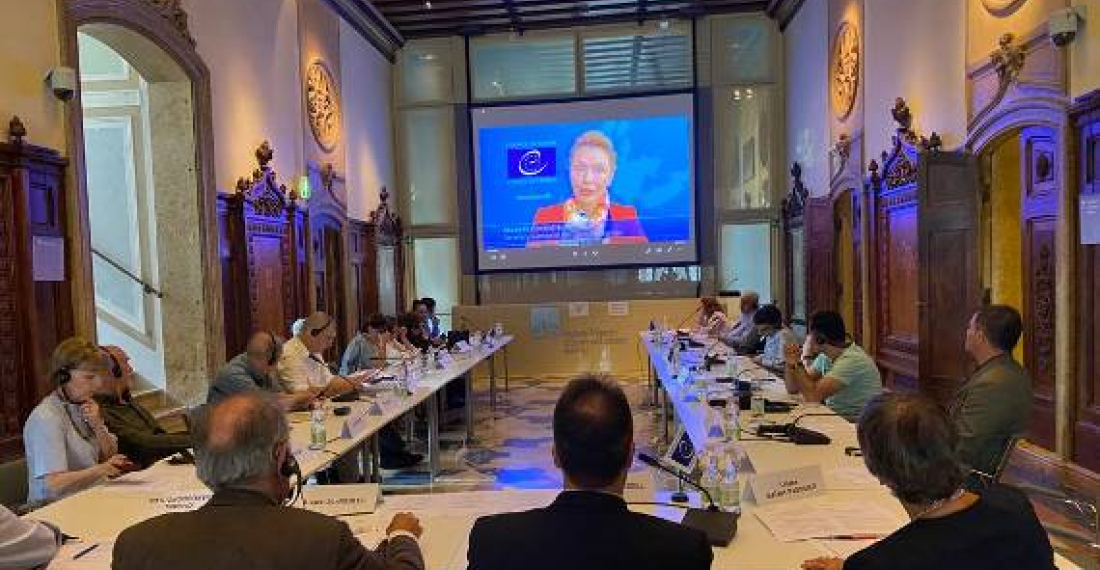"Confidence-building measures are a necessary element in any strategy to end conflicts", writes Benyamin Poghosyan in this op-ed for commonspace.eu. Whilst there have been instances of confidence-building measures in the context of the Karabakh conflict for decades, the post-2020 confidence-building measures differ from the pre-war process. "The participants are more realistic in their expectations and assessments of the situation, understanding that no miracles are possible and that any solution requires painful decisions, especially from the Armenian side. A country cannot lose the war and hope for a solution to satisfy all its expectations and desires. However, this understanding also does not mean that in the post-2020 war period, those Armenians involved in confidence-building measures were ready to accept any solution to the conflict. They seek a difficult balance between being realistic and avoiding putting themselves into “echo-chamber”, situations while not rejecting their core beliefs on the acceptable ways of conflict settlement."
Confidence-building measures are a necessary element in any strategy to end conflicts. The core goal of confidence-building measures is to create conditions for dialogue between different segments of society – experts, journalists, business people, youth, etc. In theory, these dialogues contribute to creating a more positive atmosphere for official track one negotiation, thus bringing the settlement of the conflict closer. In this context, the Nagorno-Karabakh conflict was not unique. Almost immediately after the end of the first Nagorno Karabakh war, international actors, primarily the EU and the US, launched several initiatives of confidence-building measures, seeking to bring together Armenians and Azerbaijanis to speak with each other. Within two decades, a group of people emerged in both societies, who met in Tbilisi, Europe, and elsewhere, speaking, discussing, and socializing together. The process seemed to bring some results, especially when official negotiations were close to achieve success, as it was in Key West in 2001 and Kazan in 2011.
Nevertheless, even when the official negotiations stagnated, as was the case after the failure of the Kazan summit, track two diplomacy continued to thrive. What was wrong with Armenians and Azerbaijanis meeting and speaking with each other, even with almost no hope for any influence over the track one process and any breakthrough in official negotiations? The participants emphasized the necessity to solve the conflict with peaceful means. At the same time, each side remained within its core perceptions – Armenians argued that Nagorno Karabakh could not be part of Azerbaijan, at least within its 1988 borders, while Azerbaijanis claimed that Nagorno Karabakh should be part of Azerbaijan.
The 2020 Nagorno Karabakh war has dramatically changed the situation. At the end of the day, the first reaction was a steep disappointment in the rank and file of confidence builders. After 25 years of effort and spent resources, the peace process failed. Of course, ultimately, the primary responsibility for such an outcome lay upon track one negotiations, including the leaders of Armenia and Azerbaijan and OSCE Minsk Group co-chair countries. After the end of the 2020 war and the signature of the November 10 trilateral statement, it seemed that track two negotiations lost their significance, as Russia appeared to be the sole arbiter of the conflict. However, it soon became apparent that November 10 statement did not solve the conflict, and the new reality on the ground increased the demand for confidence-building measures as a new line of contact emerged in Nagorno Karabakh, and many Armenian villages and towns found themselves near Azerbaijani troops.
Armenia and Azerbaijan resumed negotiations to sign a peace agreement at the end of 2021, and the war in Ukraine increased the involvement of the EU and the US in the negotiations, infusing geopolitical rivalry into the process. Since the end of 2021, several initiatives focused on confidence-building measures have been launched with the support of the EU and other actors, bringing together Armenian and Azerbaijani experts.
The post-2020 confidence-building measures differ from the pre-war process. The participants are more realistic in their expectations and assessments of the situation, understanding that no miracles are possible and that any solution requires painful decisions, especially from the Armenian side. A country cannot lose the war and hope for a solution to satisfy all its expectations and desires. However, this understanding also does not mean that in the post-2020 war period, those Armenians involved in confidence-building measures were ready to accept any solution to the conflict. They seek a difficult balance between being realistic and avoiding putting themselves into “echo-chamber”, situations while not rejecting their core beliefs on the acceptable ways of conflict settlement.
In this delicate situation, the humanitarian crisis unfolding in Nagorno Karabakh due to Azerbaijan's decision not to allow the supply of goods to Nagorno Karabakh via the Lachin corridor, instead offering the route via Aghdam, makes the participation in any confidence-building measures a challenging decision. The arguments of Azerbaijan are clear – all, including Armenia, recognize Nagorno Karabakh as part of Azerbaijan. Thus, Nagorno Karabakh should receive supplies from or, at least also from, Azerbaijan as any other Azerbaijani region, and not solely from Armenia. Azerbaijan views the supplies to Nagorno Karabakh from Azerbaijan as a necessary tool to integrate Karabakh into Azerbaijan's economic system. It argues that all states, including Armenia, which recognized Nagorno Karabakh as part of Azerbaijan, should support this idea.
However, the Armenians living in Nagorno-Karabakh do not accept this logic. One may approve or criticize their position, but either option does not give legal, political, and moral rights to create starvation conditions for up to 120000 people. While many understand the necessity for dialogue, the significance of the confidence-building measures, and efforts to prevent another war in Nagorno Karabakh, the death of Armenians from hunger in Nagorno Karabakh will make it extremely challenging to pursue that course.







